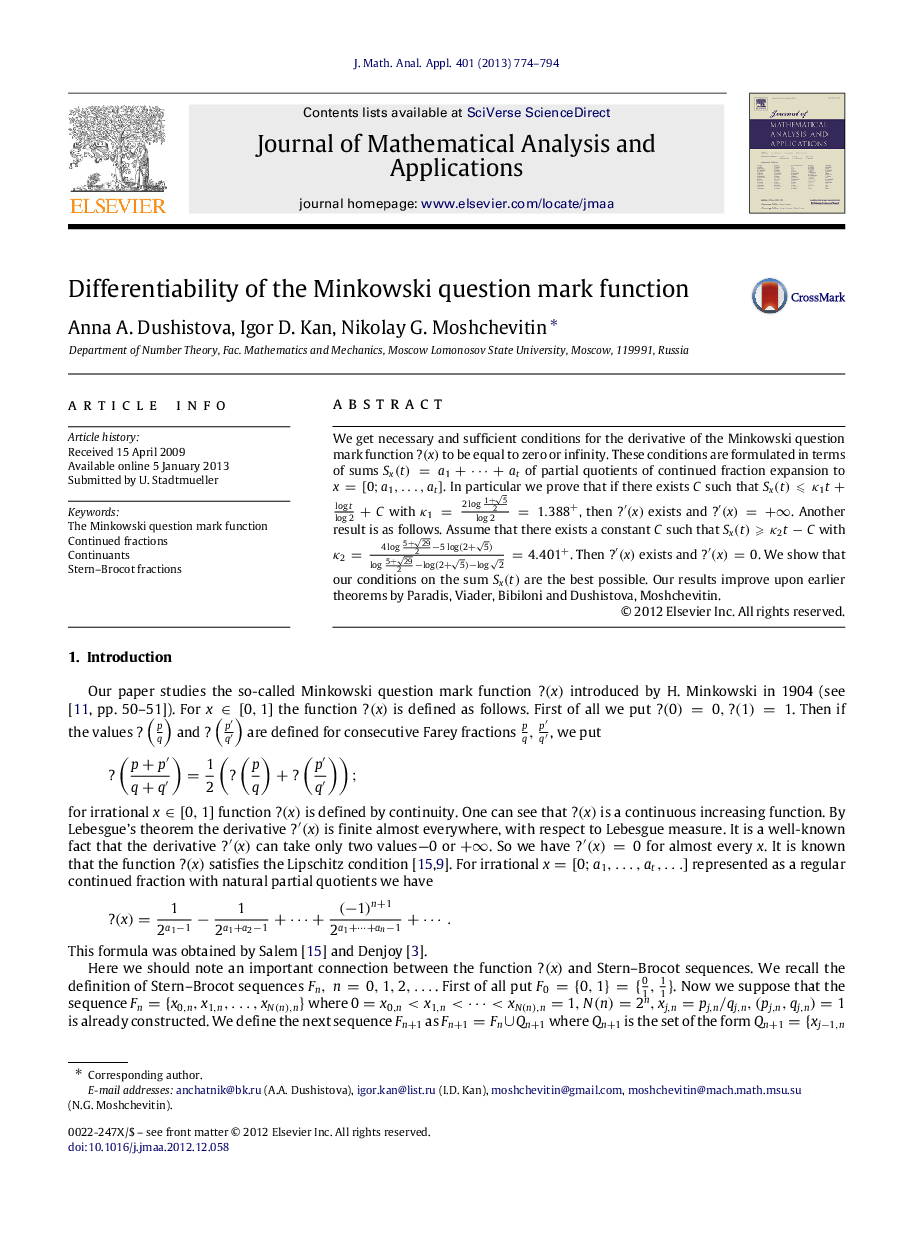| Article ID | Journal | Published Year | Pages | File Type |
|---|---|---|---|---|
| 4616804 | Journal of Mathematical Analysis and Applications | 2013 | 21 Pages |
We get necessary and sufficient conditions for the derivative of the Minkowski question mark function ?(x)?(x) to be equal to zero or infinity. These conditions are formulated in terms of sums Sx(t)=a1+⋯+atSx(t)=a1+⋯+at of partial quotients of continued fraction expansion to x=[0;a1,…,at]x=[0;a1,…,at]. In particular we prove that if there exists CC such that Sx(t)⩽κ1t+logtlog2+C with κ1=2log1+52log2=1.388+, then ?′(x)?′(x) exists and ?′(x)=+∞?′(x)=+∞. Another result is as follows. Assume that there exists a constant CC such that Sx(t)⩾κ2t−CSx(t)⩾κ2t−C with κ2=4log5+292−5log(2+5)log5+292−log(2+5)−log2=4.401+. Then ?′(x)?′(x) exists and ?′(x)=0?′(x)=0. We show that our conditions on the sum Sx(t)Sx(t) are the best possible. Our results improve upon earlier theorems by Paradis, Viader, Bibiloni and Dushistova, Moshchevitin.
